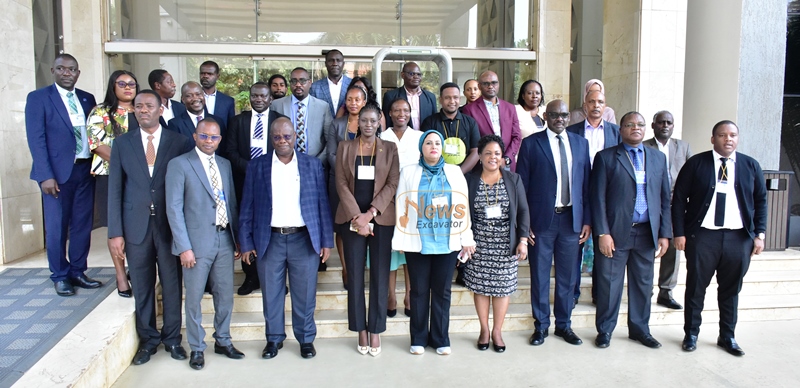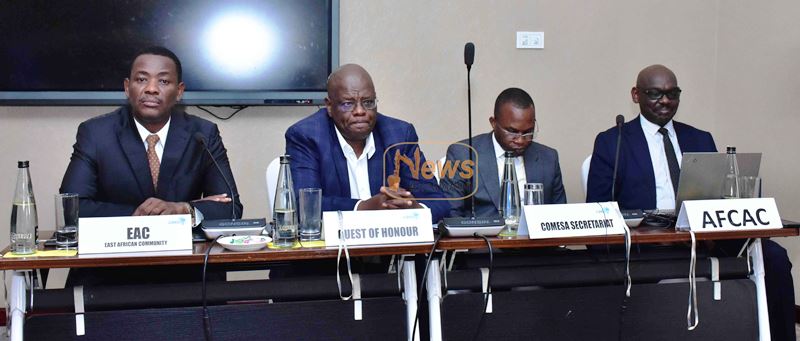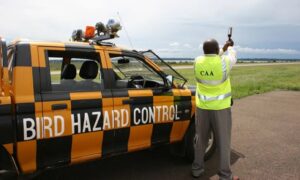
Meeting for five 95) days in Uganda’s capital city- Kampala, the Aviation regulators in Africa have laid strategies to develop laws and regulations aimed at protecting flight passengers against what they termed as some exploitative tendencies by airline companies.
Close to 30 regulators from the countries; Uganda, Tunisia, Rwanda, Tanzania, Sudan, Libya, South Sudan, Kenya, Ethiopia, Egypt, Comoros and Djibouti were engaged in a five-day workshop that started on Monday, August 26 to Friday August 30, with an aim of developing a framework that will support the review of national laws, rules, regulations and policies geared towards passenger protection.
“In several instances, when a passenger misses a flight, he or she is penalised and yet, when a flight delays, passengers are just given some snacks to eat while waiting. I find this not being fair,” remarked Fred Bamwesigye, the director general for Uganda Civil Aviation Authority (UCAA).

He noted that the workshop came at a time when protection of the consumers (passengers) of air transport services is gaining momentum across the continent. “To this end, mechanisms and arrangements have been devised in the form of a framework of collaboration between AFCAC, COMESAand East African region member states to ensure optimal benefits. This framework is designed to promote transparency, which is critical to building trust among the member states and collaborating partners,” Bamwesigye stated.
He thus, implored member states from the African Union to recognise the need for consumer involvement in the effective regulation of air transport and a need to create consumer protection units both at the regional and member states level.
“Most consumers of air transport services in the continent suffer unfair treatment from air transport service providers, coupled with inadequate information. There is therefore a need to ensure we enhance awareness of their rights and airline responsibilities,” Bamwesigye expressed.
Dr. Zacharia Kingori, the infrastructure coordinator under the Intergovernmental Authority on Development (IGAD) said, increased competition among airline companies can improve service quality but noted that a strong regulatory oversight is needed to ensure airlines comply with safety and competition rules. “Air transport travelers should receive the best services and protection from unscrupulous players in the market. The air transport sector should be secure, efficient and cost effective to all stakeholders,” Kingori urged.
The workshop was organised by the African Civil Aviation Commission (AFCAC) plus the Common Market for Southern and Eastern Africa (COMESA) through the support to Air Transport Sector Development.
Eng. Nicholas Ndema, the regional aviation expert under COMESA said, the African continent requires harmonised consumer protection regulations or a specialised set of rules dealing with air transport consumer rights. “Have we managed to reduce the harsh effect of insolvency on the passengers by travel agents, tour operators and airlines? Have we managed to ensure fair pricing, communication and decent marketing practices,” Ndema wondered.

He further suggested that to address all such challenges, there is a need to publish customer service plans and respond to customer problems. The aviation expert pledged that COMESA in cooperation with African Civil Aviation Commission (AFCAC) will continue to assist partner states to formulate and implement consumer protection policies, laws and regulations to facilitate cooperation among consumer protection agencies, conduct peer reviews and foster the exchange of knowledge and best practices.
Emmanuel Butera, the consumer protection specialist under AFCAC said the workshop identified specific consumer issues that need prioritisation and also identified capacity gaps before sharing global best strategies in consumer protection.
Paul Christian Rwegasha, the Principal Civil Aviation officer for East African Community explained that consumer protection in air transport services is the practice of safeguarding travelers against unfair practices in the market place. He noted that consumer protection measures are often established by laws that are intended to prevent providers of air transport services from engaging in fraud or specified unfair practices to gain an advantage over the consumers.
He advised respective governments to develop consumer protection legal regime which strike an appropriate balance between protection of consumers and industry competitiveness taking into account the States’ different social, political and economic characteristic without compromising aviation safety and security.
“The legal regime should reflect the principle of proportionality, allow for the consideration of the impact of massive disruptions and be consistent with international treaties,” Rwegasha urged. On November 28, 2017, Uganda ratified the Montreal Convention which is geared towards unification of certain rules for international carriage by air.

However, the effective implementation of Consumer Protection in Air transport, requires the development of consumer protection and competition regulations in Uganda and at the East African Community. All this, remains pending.
Meanwhile, as the process of domestication of the Montreal Convention and other related laws are underway, UCAA has established a Consumer Protection Unit which is currently working in collaboration with the Public affairs department and airport management using procedural manuals and guidance materials to address the matters regarding Consumer protection.




